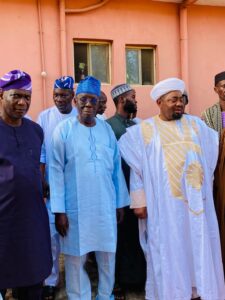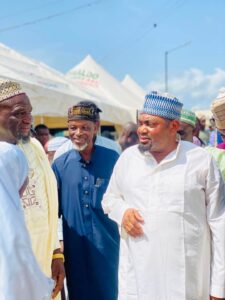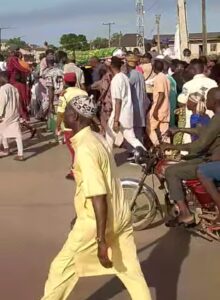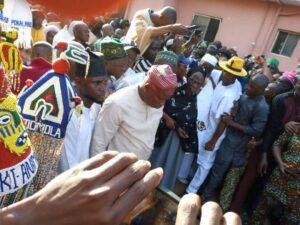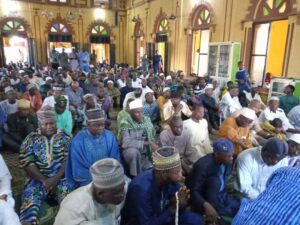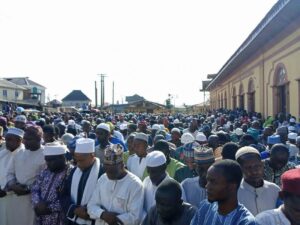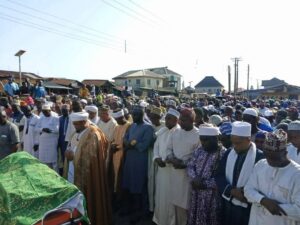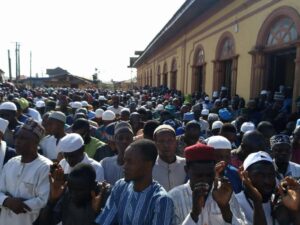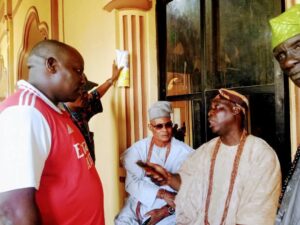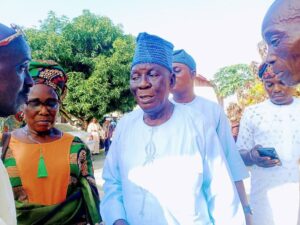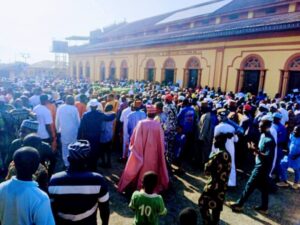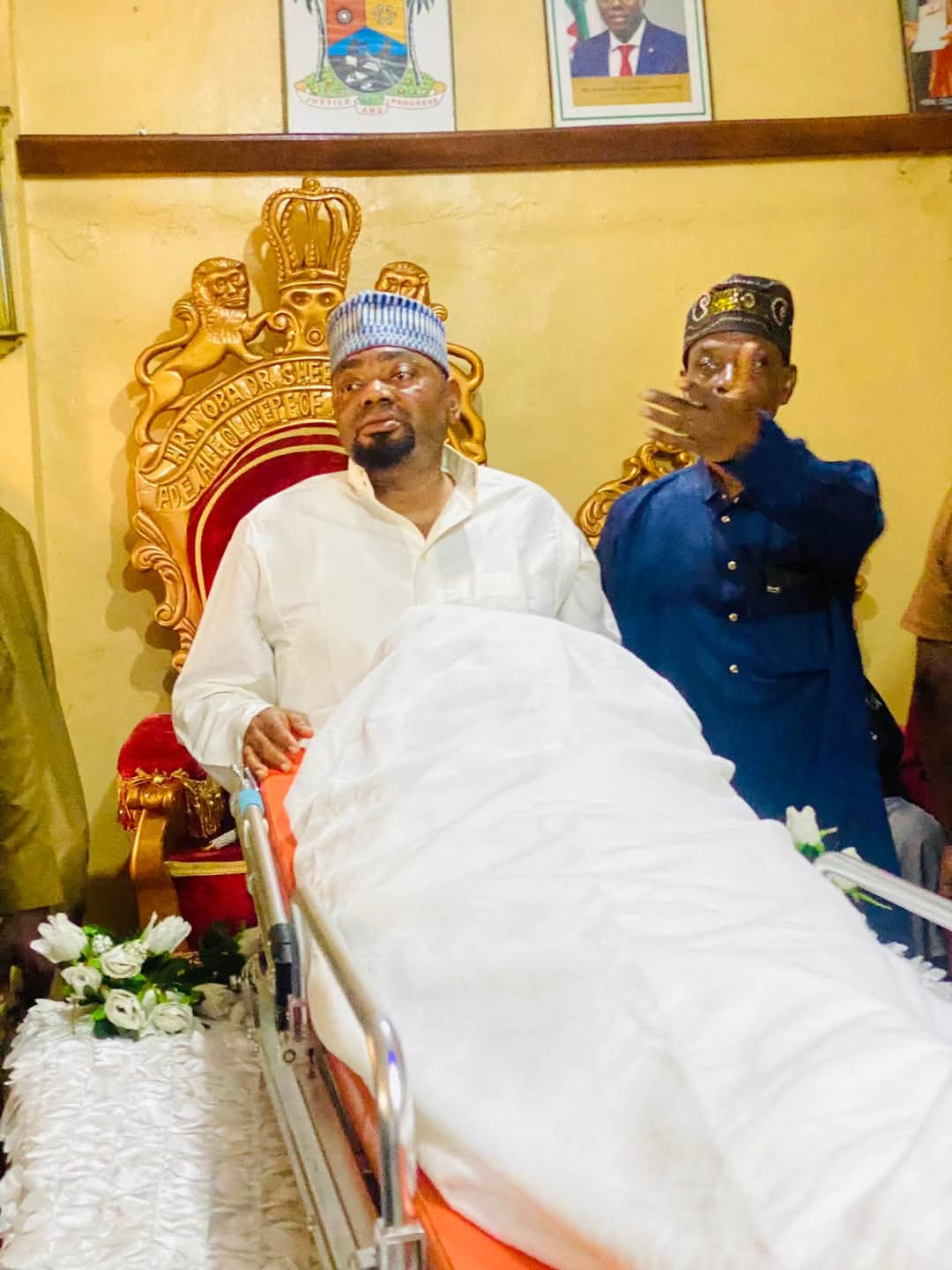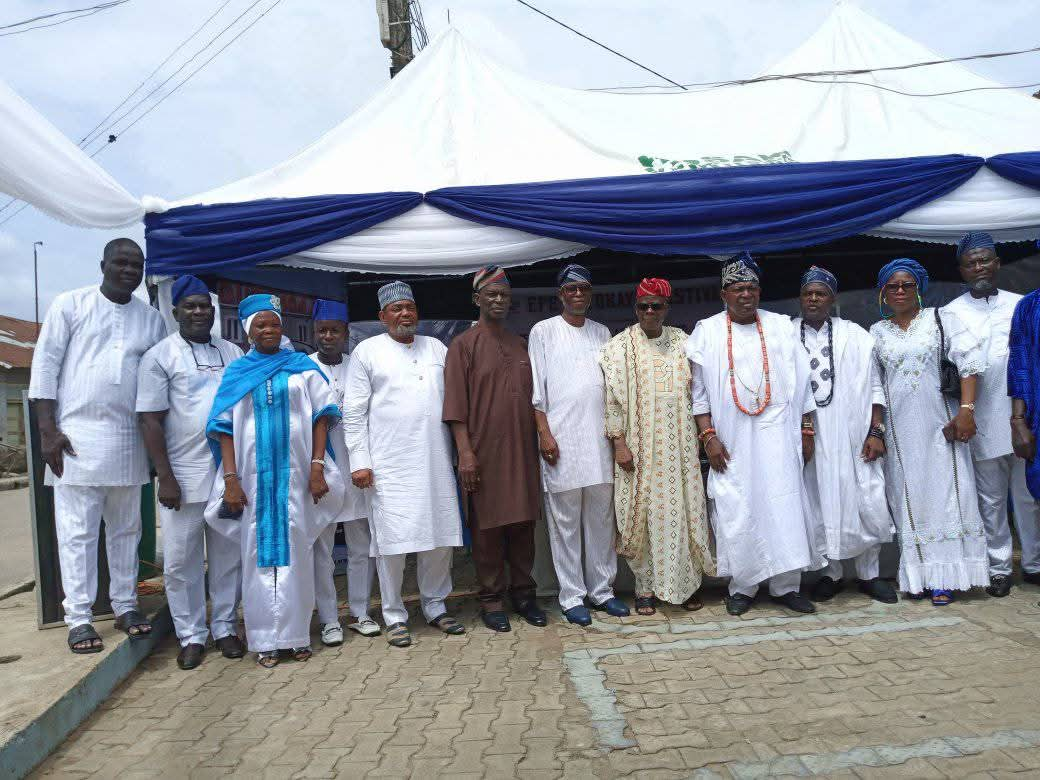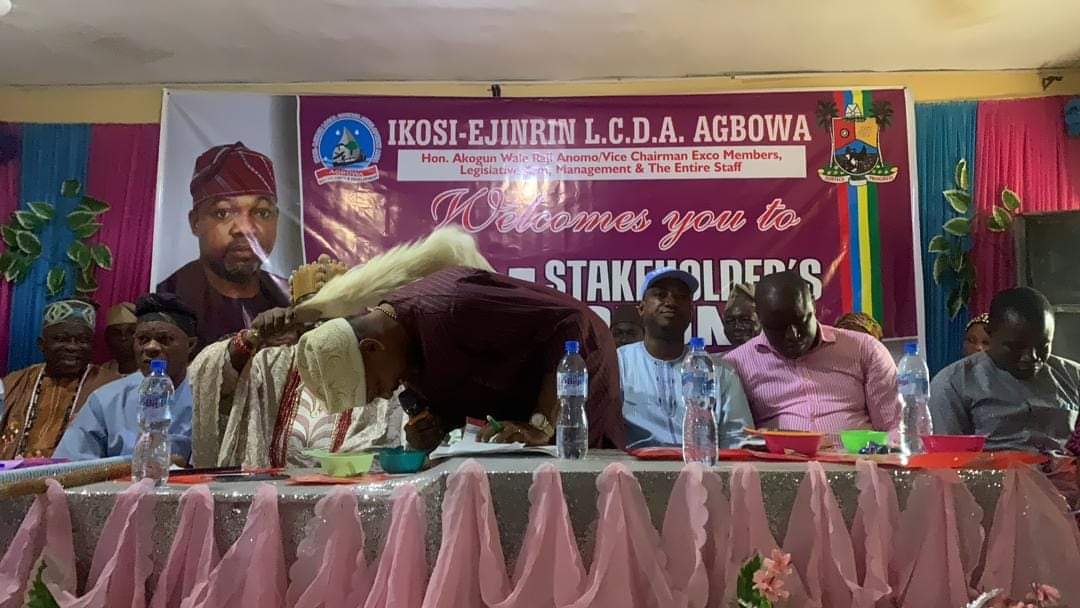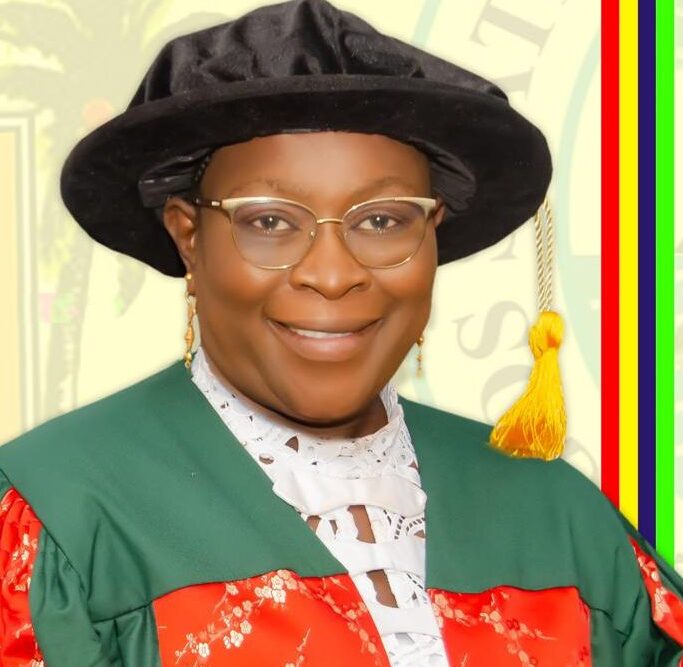In the early hours of Saturday, May 30th, 2025, kakalistiq.com reports that the ancient town of Epe, nestled between Lagos’s bustling mainland and the gleaming Atlantic, awoke not to the usual chirps of seabirds or the rhythm of traders at the fish market, but to a silence so deafening, it whispered of loss.
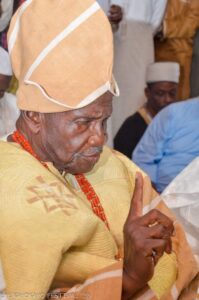
Epe, the revered Fish Basket of Lagos State, a land of sacred hills and sweeping waters, had been cast into mourning. A great pillar had fallen. His Royal Majesty, Oba Dr. Shefiu Adewale, the Olu-Epe of Epe Kingdom, had joined the ancestors.
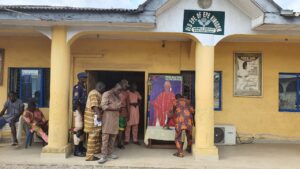
His palace, the cultural and spiritual nucleus of the town, quickly transformed into a hive of solemn reverence. Men and women, young and old, streamed in like tributaries of grief, seeking comfort in communal mourning. The air was thick with chants, Qur’anic recitations, and hushed sobs, each one a tribute to a life lived with rare nobility and unmatched service.
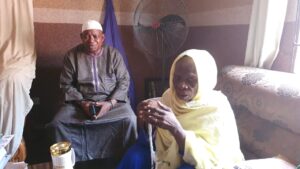
The Prime Minister of the kingdom, the venerable Mogaji-Ngeri, Chief Oduola alongside the council of traditional chiefs, initiated the sacred rites of passage in accordance with Islamic traditions and the customs of the Eko-Epe people. Though Oba Adewale drew his final breath in Lagos, his soul belonged to Epe, and Epe rose in majestic unity to welcome him home.

At the Temu axis of the Epe/Ikorodu Expressway, the people of the kingdom assembled, fathers, mothers, sons, and daughters, awaiting his return. As the motorcade glided into view, silence fell like a veil. There was no pomp, no fanfare, only honor, modest and profound, as was befitting the monarch. His body, swathed in dignity, was first taken to his residence on Ebute Afuye Road for the Islamic ritual bath, and then carried with measured steps to his royal abode for the final homage.
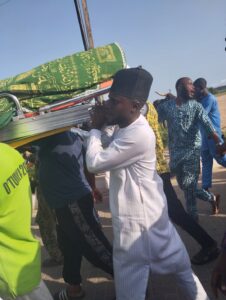
From there, a new wave of reverence unfurled as the cortege made its way to the First Epe Central Mosque at Oke-Balogun. There, Fadeelatul Sheikh AbdulRahmon Sadallah, the Grand Chief Imam of Epe Division, led the Janazah prayers alongside the Ulamas. The crowd swelled into the thousands. Traditional rulers from afar sent their staff of office. Dignitaries and commoners alike stood shoulder to shoulder, united in grief.
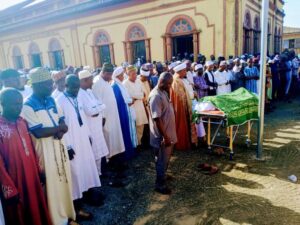
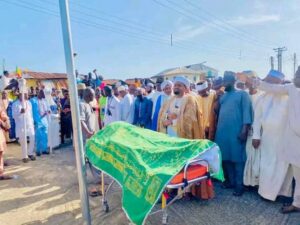
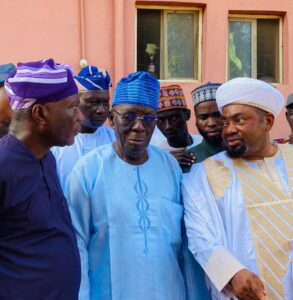
As his remains journeyed through Paramount, Marina, and back to his residence, hands reached forth to carry the weight, not just of his body, but of legacy, of honor, and of the silent question: Who can fill this royal void?
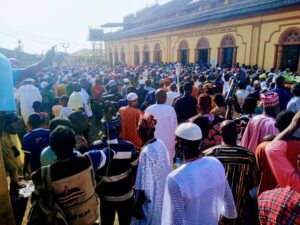
“The demise of Olu-Epe is very shocking despite his old age,” mourned Hon. Sikiru Owolomoshe, Vice Chairman of Epe Local Government. “The vacuum he left will be difficult to fill because of his brilliance, peace, religious and community disposition… He was an affectionate father and a coordinator of harmony.”
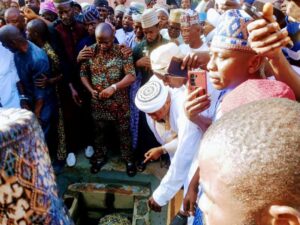
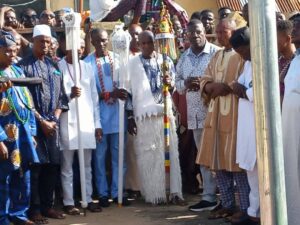
Oba Adewale was no ordinary monarch. Before he wore the crown, he had already donned the garb of service. As a civil servant, he rose to become a Director in the Ministry of Education and later, the Sole Administrator of Badagry Local Government and Executive Secretary in the Ministry of Lands. Yet his soul found its deepest fulfillment in communal service. He was once the engine of the iconic Kayokayo Festival, guiding its organization with finesse. A pillar of Epe Club and Ogunmodede Club, he fused tradition with modern insight.
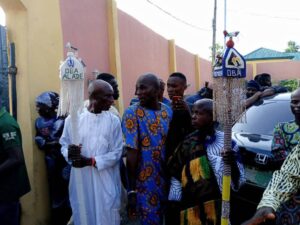
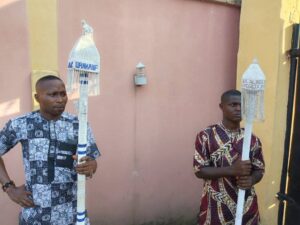
“He was the engine that drove Kayokayo,” remembered Alhaji Chief Alade Saliu-Okulu, BOT Chairman of the festival. “A community leader long before he became king. A colossal tragedy has befallen us in Eko-Epe.”
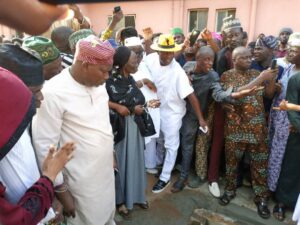
He was a man of unwavering faith, tested but unbroken. In 2015, five years into his reign, tragedy struck when he lost his sons in a boat mishap during the general election period. Where many would retreat into sorrow, Oba Adewale emerged with greater resilience, leaning even harder into his duty to serve.
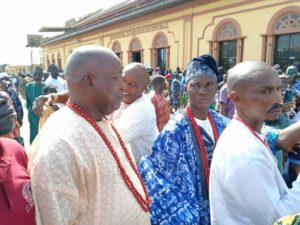
“Baba is a highly patient and devout personality,” recalled Sheikh Sadallah. “He doesn’t sleep without supplicating to God. He wasn’t greedy, but wealthy in simplicity. During Eid prayers, even before 9 am, he would be seated before everyone… and if I came late, he’d rise to honor me. Such humility in royalty is rare.”
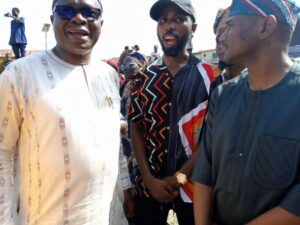
His devotion was not confined to faith alone. He once declined a brand-new official vehicle from the state government, instead demanding road repairs across Epe. “Fix the roads, not the ride,” he seemed to declare, with the kind of altruism that cements a man’s place in history.
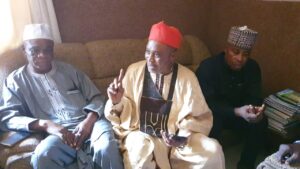
“When a mighty tree falls, it’s known to everyone,” intoned Alhaji Abdul-Kabir Oriyomi, Grand Chief Imam of Epe Land. “When an Ajanaku walks by, you see the trail it leaves. Baba’s death is like the leveling of a mountain. He gave people jobs, stability, and dignity. We never saw immorality in him.”
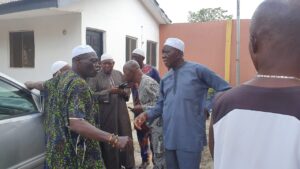
Across all corners of Epe, the sentiment was the same. From the voices of statesmen to the laments of market women, the refrain echoed: We have lost a father, a compass, a mediator.
“He was our conflict resolution mechanism,” said retired Lagos State Permanent Secretary Gafar Babatunde Sanuth. “In tense moments, he would simply emerge with an unorthodox solution and calm the storm. We may not find his kind again.”
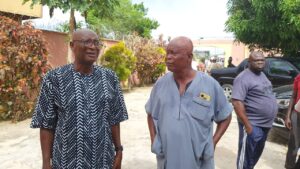
“It’s painful but we’re helpless,” sighed Architect Wasiu Abiola Anifowose, the former Lagos Commissioner for Physical Planning and Urban Development,Okanlomo and Baba Adinni of Epe. “We return to our Maker when He calls.”
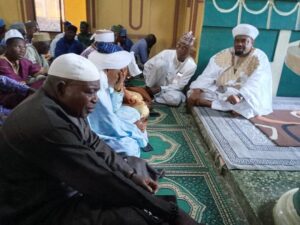
“It’s beyond expression,” muttered Alhaji Tajudeen Moninuola Agoro, Otunba Sarumi of Epe. “Every day is now a memory.”
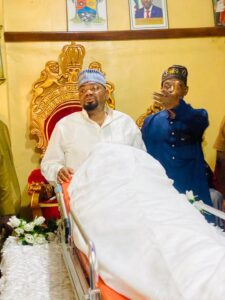
“We lost a father,” added Chief Nosiru Kaka, emotion catching in his throat. “A disciplined, dogmatic man… who taught us more than just tradition, he taught us integrity.”
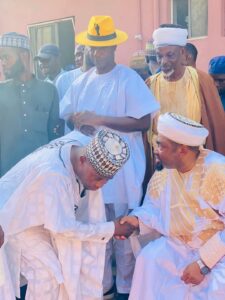
And so it is written in the hearts of the people: Oba Dr. Shefiu Adewale did not merely reign; he illuminated. Like a lighthouse in a coastal storm, he was both shelter and guide. Now, the torch he bore must pass, but the footprints he left in the sands of Epe’s history will never be washed away.
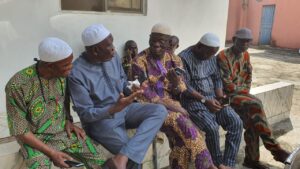
The king has joined the realm of the immortals. May his soul find eternal peace, and may Epe forever honor the mountain that once stood among men.

